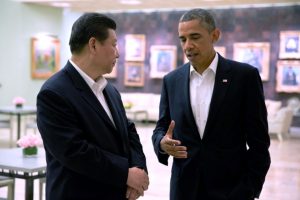Can China create an intellectual property system robust enough to support domestic technological innovation (on both the military and civilian side) while still maintaining its casual attitude toward the theft of foreign technology? The answer is almost certainly no.
From an administrative point of view, successfully managing the intellectual property (IP) aspects of a national innovation system is a tremendous challenge, especially given the long term cultural and political commitments of the Chinese state. Nevertheless, with the now-established connections that Chinese firms have developed with their foreign-owned counterparts (both inside and outside China), the foundation for a robust IP system is potentially solid. On both the civilian and military sides, Chinese officials now appreciate that IP rules facilitate information transfer and sharing, and that a strong culture of sharing is necessary in order to promote widespread innovation.
But a dual track policy of management, in which the Chinese government attempts to preserve patent and trade secret protection for Chinese firms while exposing foreign firms to attack and expropriation, is simply a nightmare. It can work on conceptual grounds, but soon the extremely complicated set of business and legal relationships that characterize the IP world will make a dual track system impossible. This is not to say that all Chinese industrial espionage will end, but if the PRC develops an internal system of guaranteed property rights, the norms and practices associated with these property rights will inevitably seep into its foreign technology acquisitions
And this helps explain why the intellectual property components of the Trans-Pacific Partnership are so important to the United States. For the U.S., the TPP enhances a “normal” vision of intellectual property protection, one that accords with practice in the world’s most advanced economies. Even though China is not yet party to the TPP, the TPP will establish the rules under which China will interact with many of its most important economic partners.
The short version of this story goes as such: the demands of international organizations (and in this case of domestic economic innovation) requires the creation of a bureaucracy that can negotiate with the IOs. Over time, this bureaucracy takes on a life of its own, changing how a government operates. With respect to IP, the need for the Chinese government and Chinese companies to navigate an increasingly complex international IP regime helps strengthen IP protection inside the country.
The criminal penalties pushed by the United States in the TPP may also have a deterrent effect on the decisions of government personnel, businessmen, and scientists. The United States will never be able to force the arrest of suspected PLA hackers, but if other Pacific Rim states get on board, it might be able to threaten Chinese nationals and firms working and operating abroad with meaningful sanctions.
The United States is pushing TPP so hard, and pushing the intellectual property components in particular, because it views the creation of IP as a key comparative advantage of the U.S. economy. Washington believes that if it can convince (or force) other countries to abide by the set of rules that the U.S. has established, it can maintain this advantage. And incidentally, forcing China to play by the rules on civilian IP will make it harder for China to freely appropriate U.S. IP for military purposes.

































